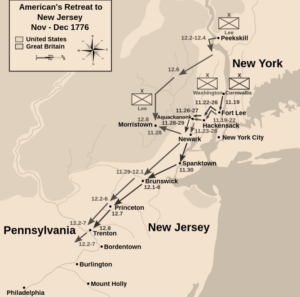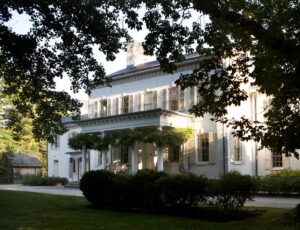Meet Your Revolutionary Neighbors
Richard Stockton
1746-1794
I was a signer of the Declaration of Independence who suffered during the war.
My grandfather had purchased land from William Penn way back in 1701, and I was born there, in Princeton, in 1730. I was admitted to the bar and then opened a law office in town, in 1754. Three years later I married Annis Boudinot and we lived at our grand home, which we called Morven, the Gaelic word for big mountain.
During the Stamp Act controversy, I traveled throughout Great Britain and warned many prominent people that the colonies would steadfastly oppose any taxation without representation in Parliament. After returning to New Jersey I drafted a recommendation for a way to have the colonies to be independent from Parliament but still loyal to the Crown, and sent it to Lord Dartmouth, Secretary of the Colonies. The idea was rejected.
I was elected to the Continental Congress in June 1776 and signed the Declaration of Independence a month later. I was one of the few signers who visited our troops to see their condition, and I was shocked. I wrote to the New Jersey Legislature to ask for shoes, stockings, and other clothes for our soldiers.
And then the British army invaded New Jersey. When George Washington retreated through Princeton after losing New York City, I hurried to Princeton to get my family out of harm’s way. On November 30, I was dragged from my bed by Loyalists and sent to a British jail. I was put in irons and starved and shivered through the winter.
I was released on the condition that I wouldn’t participate in the war. But not long after, on February 28, 1781, I died of cancer before I could see my nation win its independence.
Learn More



